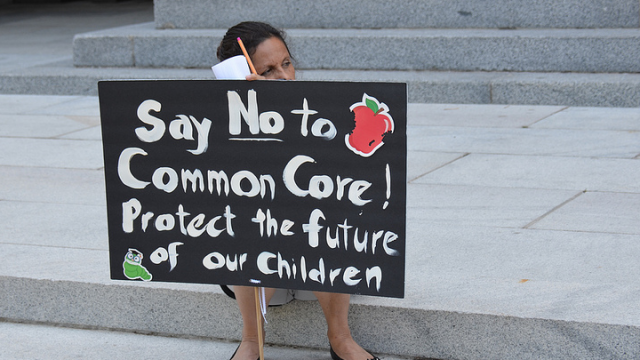Rod St. Aubyn: What Political Price Will Republicans Pay For Common Core Debate?

I just caught the tail end of the debate on HB 1461 in person, commonly referred to as the Repeal of Common Core Bill. After listening to more of the debate on-line, it was very apparent that passions ran deep. Supporters of the bill tried a last ditch effort to divide the bill into two sections with the hope of winning enough support to pass the bill. As we all know by now, both sections of the divided report failed. The last section of the report was defeated unanimously, which just exemplifies that the bill was clearly flawed as written and created more problems which most reasonable minds understood (at least all house members understood).
Recently I wrote a column justifying the need for legislative studies, especially for complex and controversial issues such as Common Core. If this issue had been introduced as a legislative study, during the course of that study the issues that were recently unanimously defeated would have been clearly identified as problematic. Most likely those parts would not have been included in the final bill draft considered by the interim committee. And there is a fair chance that the final product would have stood a better chance of passing during the following legislative session.
[mks_pullquote align=”right” width=”300″ size=”24″ bg_color=”#000000″ txt_color=”#ffffff”]…will proponents or opponents treat this issue like the controversial abortion legislation from the last session and target either the proponents or opponents in the next election?[/mks_pullquote]
I witnessed a lot of hard feelings among legislative supporters and legislative opponents after the defeat of the bill. One opponent was upset that the House Majority Leader, Rep. Al Carlson, did not support his Education Committee Chair and Committee. Historically, the leader supports his/her committee’s recommendations or makes it known to the chairman and committee that he cannot support their recommendations before the floor vote. In fairness to Rep. Carlson, he supported the first part of the bill (repealing the Smarter Balanced Assessment Consortium and other aspects), but voted against the second part of the bill in support of the committee. It is unfair to judge Rep. Carlson’s votes because what was voted on by the committee was different than what was voted on by the full house. The Committee was not faced with a divided question on the measure.
Emotions were and are still running very high regarding this issue. Supporters and opponents are both equally concerned about the issue. As Yogi Berra famously said, “It ain’t over till it’s over.” One legislator told me that there will be an attempt to amend one of the Senate Education bills to address this issue again in the House. My gut feeling tells me that there is more support for repealing Common Core in the House than in the Senate. So even if the House is successful in attaching their language to a Senate Bill, it is far from assured to being adopted by the Senate in a conference committee.
Rep. Carlson was heard in a media report saying that he would like this to be addressed by DPI or others and a report be submitted to the legislature in about a year. A legislative study would do just that.
In the meantime, one thing I wonder about is whether there will be political fallout during the next election. The Republican legislature is a very large body comprised of conservative Republicans, moderate Republicans, and what some may classify as liberal Republicans. The Democrat legislators also have what are considered liberal Democrats and more moderate or even fiscally conservative Democrats. But their numbers are far fewer in both houses.
The question is, will proponents or opponents treat this issue like the controversial abortion legislation from the last session and target either the proponents or opponents in the next election? It is still over a year and half before the next election and there are a lot of things that could yet happen in this legislative session. But it will be interesting to see if there will be a political price for the Common Core battle.




